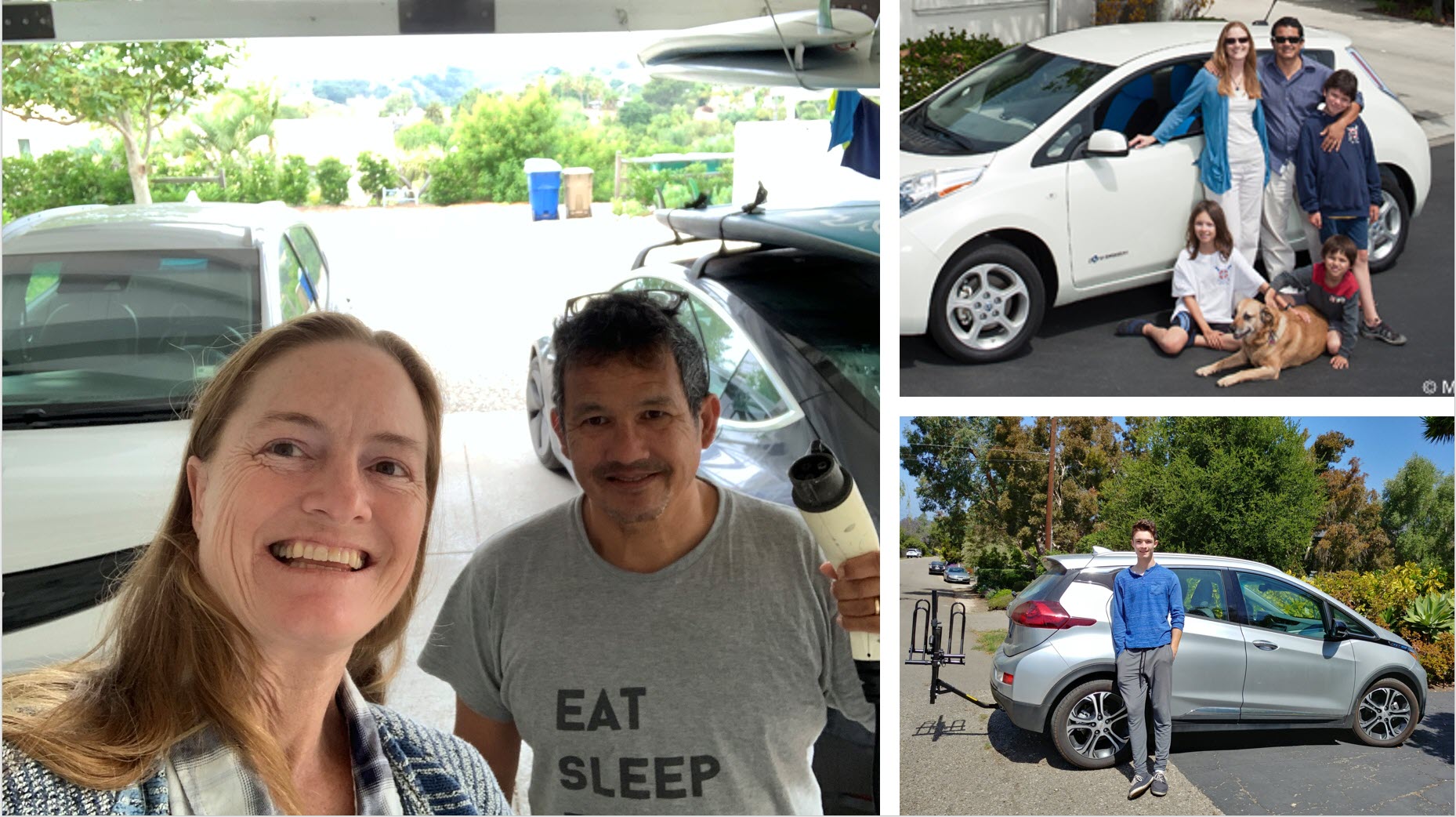By Katie Davis - See my updated blog entry for electric car resources here.
In honor of the upcoming National Drive Electric week, I am hereby declaring I will never buy a gas car again. It’s an easy call. Having driven electric cars for a decade, I would not give up the quiet, fume-free driving experience, the convenience of charging at home, the freedom from gas stations and oil changes, and the peace of mind that comes from kicking the addiction to oil. My family has gone through several different kinds of electric cars, and my whole extended family now drives only electric. My college-age son, who has had his drivers license for several years, has never even driven a gas car.
It's getting easier and more affordable to go electric. Used electric cars are now an option, and new ones have longer ranges, with more public charging infrastructure, which opens up long-distance travel. California offers grants and generous rebates for lower income people. Utilities like SCE and PG&E offer additional rebates. The cost for electricity is much cheaper than gasoline.
Here are some useful resources for choosing and driving an electric vehicle (EV):
Electric Vehicles 101: We recently partnered with the Community Environmental Council on a webinar overview and Q&A. You can watch the recording, view the slides or join an EV facebook group here.
New cars: There are over 50 different EV options, whether your price range is $20,000 or $200,000. PG&E has a nice list showing costs and ranges for vehicles. You can track the latest news on electric cars at Green Car Reports.
Leased cars: A good option given the continuous improvement in EVs. This site lists specific lease offers at dealerships, with many in the $100-$300 a month range. The rebates should help cover the upfront costs.
Used cars: As an example, a used Nissan Leaf can be found for $4000 - $9000. Use the “advanced search” feature on AutoTader, and select, fuel type “electric.”
Rebates: The federal tax credit is applied when you buy or lease an EV. You have to apply for state and utility rebates which range from $750-$10,000 depending on eligibility. Be sure to research rebates whether you are buying new, used or leasing. You can practically get a free car. Electric Drive 805 has all the links.
Home Charging: If you can park near an outlet, you can plug in and charge an EV. It’s faster if you can install a home charging station. They cost $300-$800 plus an electrician’s time. Look into rebates for this too.
Public Charging: Download the plugshare app on your phone to find places to charge when you’re on the road, and sign up for ChargePoint, Blink, and EVgo, which are the most common charging networks. Note that Teslas have their own network, and your magic car will point you to them.
Of course, driving less or not at all is the most sustainable option and we encourage biking, walking and public transportation (with a mask). However, if you must drive, by going electric, you will help increase the demand and supply of EVs and help hasten our transition away from gas-guzzling, polluting vehicles, and influence those around you to do so as well.
Lastly, if you make the switch and want to donate your old, used car to the Sierra Club, you can do so here.

Growing up with EVs